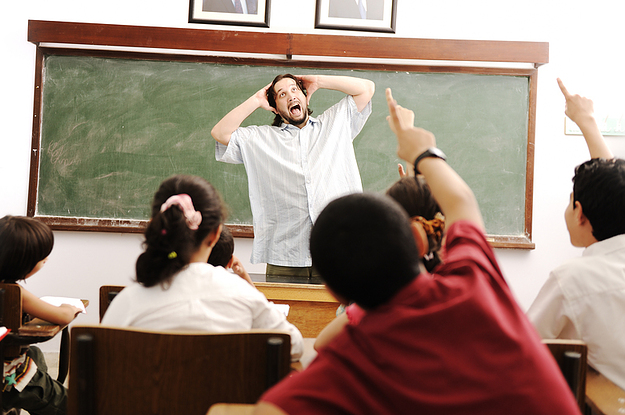A handful of research studies confirm that noise has a negative effect on a child’s ability to learn. Also, “noise education” should be part of the school curriculum; kids should know how to protect their ears from harm…
Children in schools bombarded by frequent aircraft noise don’t learn to read as well as children in quiet schools do, say Cornell University researchers. And those researchers have discovered one major reason: kids tune out speech in the racket.
“We’ve known for a long time that chronic noise is having a devastating effect on academic performance of children in noisy homes and schools,” says Gary Evans, an environmental psychologist in Cornell’s College of Human Ecology and an international expert on noise, crowding, and other forms of environmental stress.

Evans and his collaborator, environmental psychologist Lorraine Maxwell, compared children in a noisy school (in the flight path of a major international airport) with similar children in a quiet school. Their study, which will be published in Environment and Behavior later this year, compared a total of 116 first and second graders from two elementary schools. One school was battered by peaks of up to 90 decibels of noise from low-flying planes every 6.6 minutes. The other school, closely matched for ethnicity and percentage of children receiving subsidized school lunches and speaking English as a second language, was in the same urban area but in a quiet neighborhood.
The study’s findings were significant for speech perception amidst noise, states a summary of the research. “This implies that language acquisition is an underlying mechanism that accounts for some of the noise-reading deficit link,” says Maxwell.
Evans and Maxwell also suspect that other factors may be at work in noisy schools and neighborhoods, such as teacher and parent irritability and their reluctance to talk as much, use as many complete sentences, and read aloud as often as other teachers and parents do.
ADDITIONAL STUDIES OF NOISE AND LEARNING
- Preschoolers in daycare centers located near elevated trains in New York City did poorer on psychomotor skills than their counterparts in quieter neighborhoods did. (Hambrick-Dixon, Developmental Psychology, 1985)
- Older students who attended schools near major New York airports had lower reading scores than children in schools located further from the airports did. (Green & Shore, Archives of Environmental Health, 1982)
- Children living near noisy highways in Los Angeles had lower reading scores and children living near a major airport there had more difficulty solving cognitive problems. (Cohen, Glass and Singer, Journal of Experimental and Social Psychology,1973 and 1980)

- In one New York City school, a study focused on students in grades two, four, and six. Half of the classes at each grade level were in classrooms adjacent to train tracks; the other half of the classes were on the quieter side of the building. The study showed that the reading levels of the students on the noisy side of the building were behind the reading levels of their peers on the quiet side of the building. The sixth graders on the noisy side of the building averaged as much as one year behind in reading. (Bronzaft & McCarthy, Environment and Behavior, 1975) Then rubber pads were installed on the nearby train tracks and acoustic ceiling tiles were installed on ceilings of the noisiest classrooms. Those noise-abatement measures cut the noise levels in the noisy classrooms by as much as eight decibels. (Noise levels are cut in half for every ten-decibel decrease in measured sound.) A two-year study following the installation of the rubber pads and acoustic tiles showed no differences in reading levels between classes on the two sides of the building. (Bronzaft, Journal of Environmental Psychology, 1981)
- A study of seventh and tenth graders found that the high-academic students were not affected by nearby airport noise while lower-achieving students were affected. (Maser, Sorensen, Kryter & Lukas, Western Psychological Association Conference, 1978)
- Noise is more bothersome in crowded classrooms; teachers in those classrooms might resort to quieter, less effective teaching methods because of the conditions. (Gifford, Environmental Psychology, Allyn and Bacon, Inc., 1987)
- Language and cognitive skills develop more slowly in children raised in noisy homes. Possible reason: Parents in noisy homes interact less often with their children. (Wachs, American Psychological Association Conference, 1982)
SO WHAT ABOUT NOISE?
More efforts should be made to ensure that the classroom environment is conducive to learning, experts say. In addition, schools must include in their curricula the information students need to know about noise and how it can affect their hearing and their health–and their studies! Many textbook companies are devoting more space to noise education now than they have in past editions, but many experts say that isn’t enough. They say every state should mandate “noise education” as part of its health curriculum.
Share Blog:
Sharing is caring! Courtesy of Education World


1 thought on “Have You Heard? Noise Can Affect Learning!”
Comments are closed.